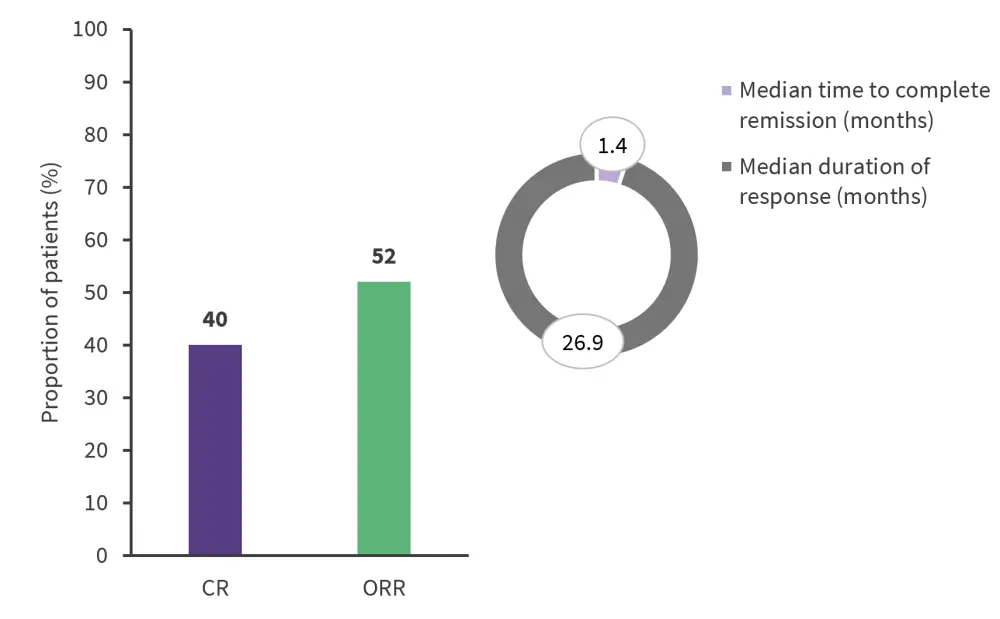All content on this site is intended for healthcare professionals only. By acknowledging this message and accessing the information on this website you are confirming that you are a Healthcare Professional. If you are a patient or carer, please visit the Lymphoma Coalition.
The lym Hub website uses a third-party service provided by Google that dynamically translates web content. Translations are machine generated, so may not be an exact or complete translation, and the lym Hub cannot guarantee the accuracy of translated content. The lym and its employees will not be liable for any direct, indirect, or consequential damages (even if foreseeable) resulting from use of the Google Translate feature. For further support with Google Translate, visit Google Translate Help.
The Lymphoma & CLL Hub is an independent medical education platform, sponsored by AbbVie, BeOne Medicines, Johnson & Johnson, Miltenyi Biomedicine, Nurix Therapeutics, Roche, Sobi, and Thermo Fisher Scientific and supported through educational grants from Bristol Myers Squibb, Lilly, and Pfizer. Funders are allowed no direct influence on our content. The levels of sponsorship listed are reflective of the amount of funding given. View funders.
Now you can support HCPs in making informed decisions for their patients
Your contribution helps us continuously deliver expertly curated content to HCPs worldwide. You will also have the opportunity to make a content suggestion for consideration and receive updates on the impact contributions are making to our content.
Find out more
Create an account and access these new features:
Bookmark content to read later
Select your specific areas of interest
View lymphoma & CLL content recommended for you
The Korean Ministry of Food and Drug Safety approves glofitamab for patients with R/R DLBCL
On December 8, 2023, the Korean Ministry of Food and Drug Safety approved glofitamab, a bispecific monoclonal antibody for the treatment of patients with relapsed/refractory (R/R) diffuse large B-cell lymphoma (DLBCL) after ≥2 lines of systemic therapy. This decision is based on promising results from the phase I/II NP30179 trial (NCT03075696).1
NP30179 trial
NP30179 is a phase I/II open-label study evaluating glofitamab in patients with R/R DLBCL after ≥2 lines of systemic therapy.1 The Lymphoma Hub previously reported the trial design and promising results (Figure 1).
Figure 1. NP30179 trial outcomes in patients with R/R DLBCL (n = 155)*

CR, complete response; DLBCL, diffuse large B-cell lymphoma; ORR, overall response rate; R/R, relapsed/refractory.
*Adapted from Korea Biomedical Review.1
The most common adverse event was cytokine release syndrome occurring in 63%.
Conclusion
The approval of glofitamab in Korea provides patients with R/R DLBCL another treatment option that could benefit the rise in cases of DLBCL currently observed in Korea.
References
Please indicate your level of agreement with the following statements:
The content was clear and easy to understand
The content addressed the learning objectives
The content was relevant to my practice
I will change my clinical practice as a result of this content

